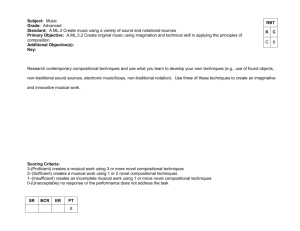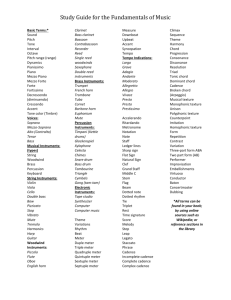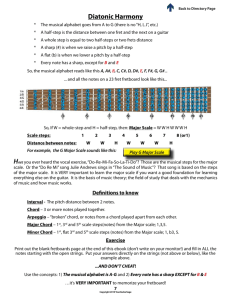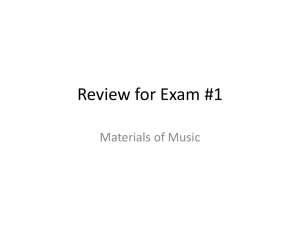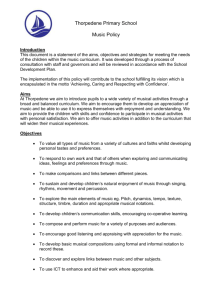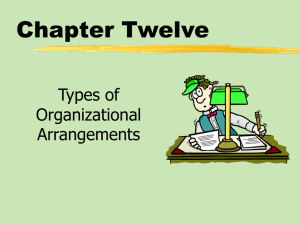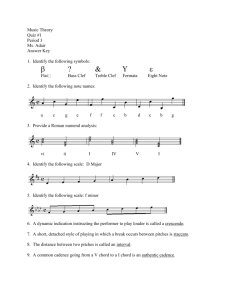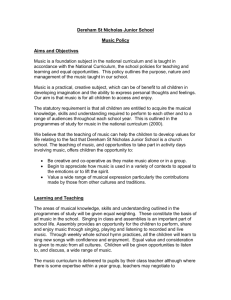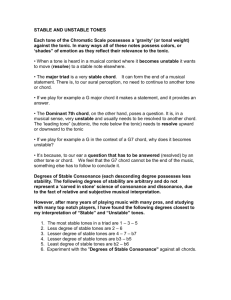Music Theory I and II Syllabi
advertisement
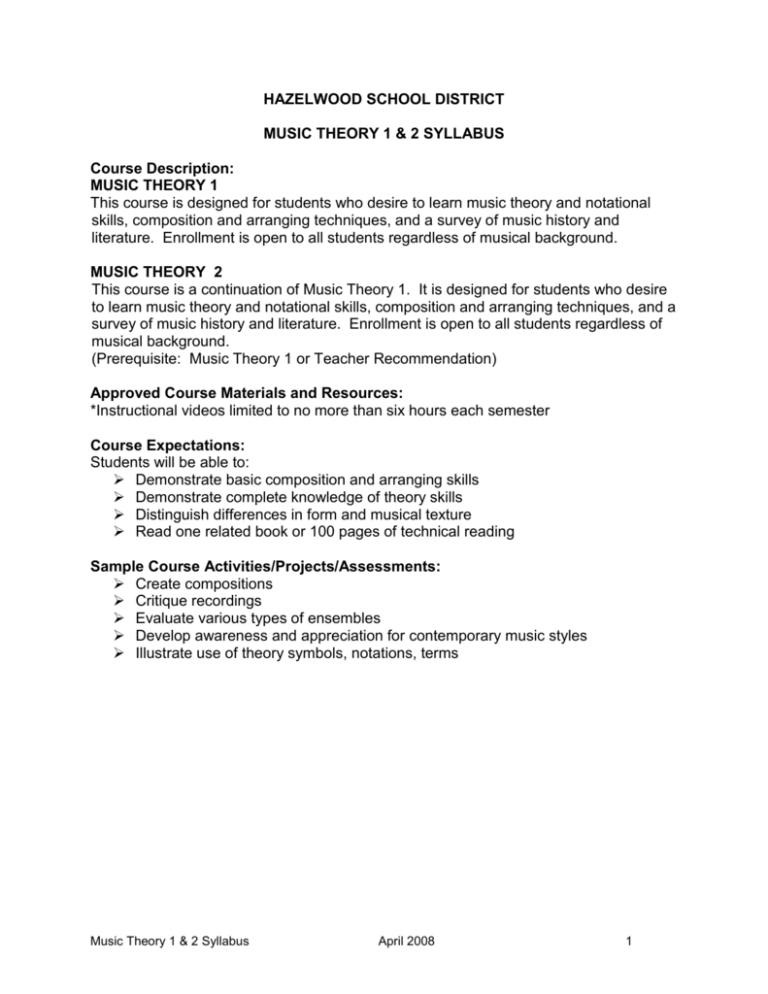
HAZELWOOD SCHOOL DISTRICT MUSIC THEORY 1 & 2 SYLLABUS Course Description: MUSIC THEORY 1 This course is designed for students who desire to learn music theory and notational skills, composition and arranging techniques, and a survey of music history and literature. Enrollment is open to all students regardless of musical background. MUSIC THEORY 2 This course is a continuation of Music Theory 1. It is designed for students who desire to learn music theory and notational skills, composition and arranging techniques, and a survey of music history and literature. Enrollment is open to all students regardless of musical background. (Prerequisite: Music Theory 1 or Teacher Recommendation) Approved Course Materials and Resources: *Instructional videos limited to no more than six hours each semester Course Expectations: Students will be able to: Demonstrate basic composition and arranging skills Demonstrate complete knowledge of theory skills Distinguish differences in form and musical texture Read one related book or 100 pages of technical reading Sample Course Activities/Projects/Assessments: Create compositions Critique recordings Evaluate various types of ensembles Develop awareness and appreciation for contemporary music styles Illustrate use of theory symbols, notations, terms Music Theory 1 & 2 Syllabus April 2008 1 Course Outline: 1. Theory a. Theory symbols and notation techniques b. Scales, scale construction, and interval relationships c. Vocabulary terms d. Key signatures e. Chord symbols, chord construction, and interval relationships in chords f. Time signatures, counting systems, and rhythmic pulse/meter 2. Composition and Arranging Skills a. Compositions incorporating various styles and techniques b. Analyze representative works for compositional techniques c. Classify all instruments d. Other compositional techniques 3. Historical Styles a. Differences in form and musical texture Course Curriculum Map: Theory Composition and Arranging Skills Historical Styles throughout course throughout course throughout course Lesson Protocol: Warm up Teacher Input o Check for understanding Teacher Models techniques o Check for understanding Guided Practice: Students apply techniques with guidance o Check for understanding Group Practice: Students work independently and in groups Closing Activity: put materials away Music Theory 1 & 2 Syllabus April 2008 2 Course Power Vocabulary: a cappella accelerando accent accidental accompaniment acoustic ad lib alla breve answer arrange articulation band binary call and response canon ceremonial choir chord chord progression chromatic classical music Classical Period clef coda compose composer concert conductor crescendo curwen hand signs D.D. – Da Capo D.S. – Dal Segno Dalcroze method decrescendo/diminuendo diction double flat double sharp duet dynamics elements of music Music Theory 1 & 2 Syllabus embellishment ensemble expression fermata fine folk song form fretted instruments genre harmony idiophone improvise instrumentation interlude interval intonation introduction jazz key key signature keyboard instruments legato level of difficulty lullaby lyrics madrigal march melody membranophone meter meter signature metronome modality mode modulation notation orchestra ostinati patriotic songs pentatonic phrase phrasing pitch popular music recapitulation rhythm ritardando round sacred scale score secular sequence sequencer slur solo sonata spiritual staccato staff staves style syncopation synthesizer theme and variation tempo tenuto texture theme tie timbre tonality transposition trio tutti variation waltz April 2008 3
